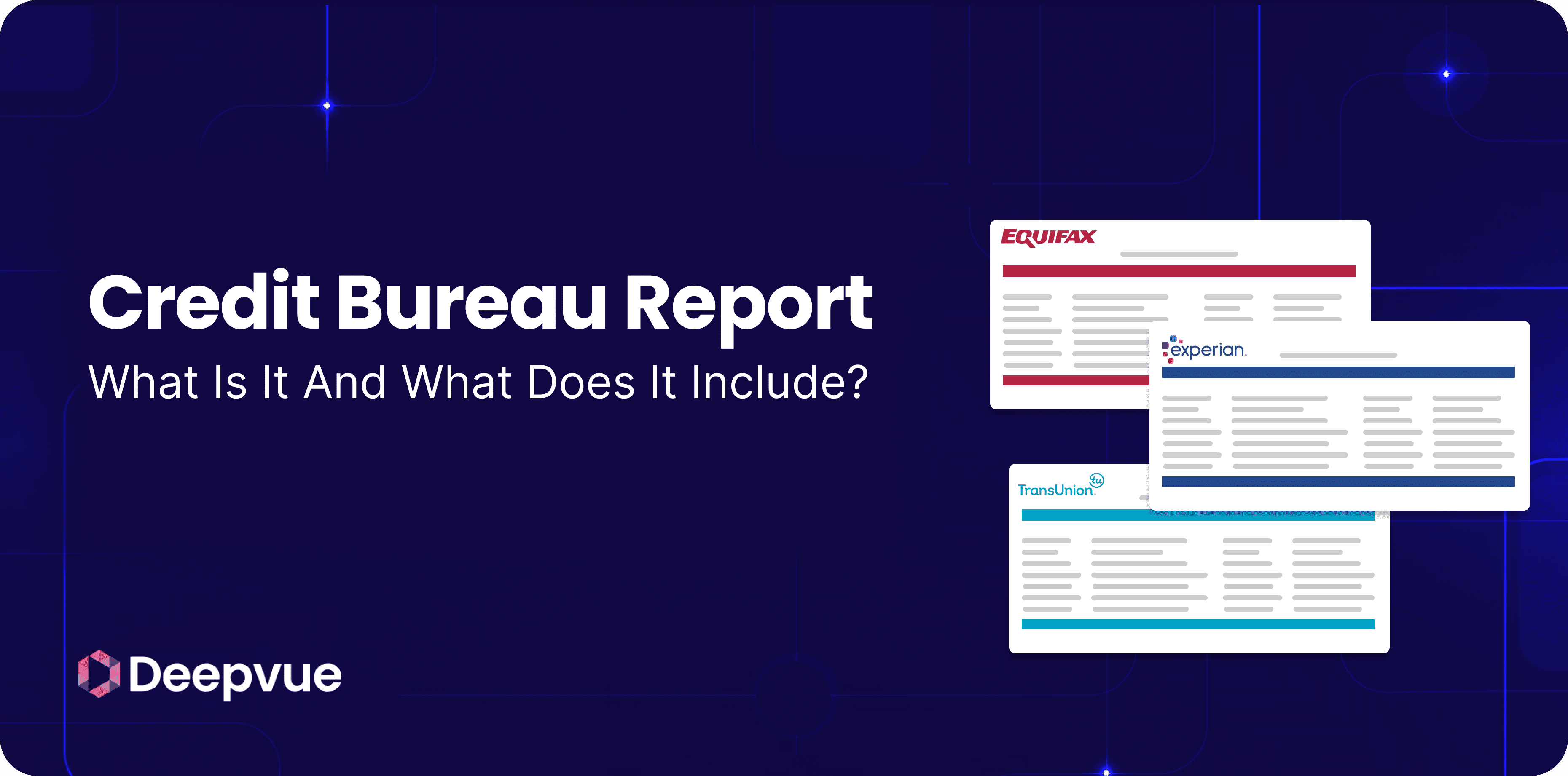Each time you borrow money, get a credit card or even sign up for a buy-now-pay-later facility, an unseen judge is functioning — your credit bureau report. It is an in-depth record of your history with credit and is a critical determinant of whether you get approved, how much you can be approved for, and at what interest rate.
While a basic credit score just provides a snapshot, the credit report provides more insight into your financial habits. It takes into account your payment history, current debts, past delinquencies, and much more, all put together by licensed credit bureaus. The report assists lenders in gauging risk and making sound decisions prior to extending credit.
What Is a Credit Bureau Report?
A credit bureau report is a detailed account of your credit history gathered by licensed credit bureaus. The report includes information regarding your loans, use of credit cards, repayment history, and other credit activities. Banks, insurers, landlords, and even employers might utilize this report to evaluate your creditworthiness.
While the credit score (a 3-digit score) tends to take the spotlight, it’s only one component of the bigger picture. The credit report contains the whole story — how you’ve handled credit over time.
Who Prepares These Reports?
There are four big credit bureaus licensed by the Reserve Bank of India (RBI) to collect and store consumer credit information in India:
- CIBIL (TransUnion CIBIL)
- Equifax
- Experian
- CRIF High Mark
These credit bureaus get periodic data from banks, NBFCs, card issuers, telecom providers, and other furnishers. They aggregate this data from standardized formats and fields to build a rich picture of an individual’s or business’s credit history.
What Does a Credit Bureau Report Include?
A credit report consists of various sections, each with a particular function. Let us deconstruct each one of them:
1. Personal Information
Identification is done with this section which contains:
- Full name (with aliases, if any)
- Date of birth
- Gender
- PAN, Aadhaar, and other ID numbers
- Contact information (addresses, phone numbers, email IDs)
- Employment information (company name, income range)
2. Account Information / Credit Facilities
Here is mentioned every credit line that is against the individual:
- Type of credit: personal loan, home loan, credit card, car loan, education loan, etc.
- Name of lender
- Account number (generally blanked)
- Sanctioned amount or credit limit
- Current outstanding amount
- Monthly EMI amount and due dates
- Loan tenure and repayment begin date
- Loan tenure and repayment start date
3. Repayment History
One of the most important details for lenders is a breakdown, month by month, of your payment history for as much as 36 months.
- DPD (Days Past Due): Tells you whether you paid late and by how many days
- Status codes such as “000” (on time), “XXX” (no data), or numbers such as “060” (60 days overdue)
- Classification such as Standard, Substandard, NPA (Non-Performing Asset), Write-off, or Settled
4. Credit Score
Where the in-depth report provides background, the credit score provides a snapshot:
- Range: 300–900
- Above 750 is generally good
- According to the repayment record, credit utilization, credit history length, mix of credit, and inquiries
5. Enquiry Information
Whenever you apply for a loan or credit card, the lender initiates a hard inquiry. This section records:
- Date of the inquiry
- Name of the lender
- Type of credit applied for (e.g., credit card, personal loan)
- Amount requested
6. Public Records (If Applicable)
This covers legal and financial actions such as:
- Bankruptcies
- Court judgments
- Written-off loans or settlements
How Often Is It Updated?
Lenders report new credit information to bureaus on a monthly basis. Nevertheless, there may be a delay between making a payment and its appearance in your report.
That’s why it’s a good idea to review your credit report at least once every 6 months — to spot mistakes or out-of-date information.
Why Is the Credit Bureau Report Important?
Your credit report acts as your financial resume. Here’s why it matters:
- Loan Approvals: Lenders rely on it to decide whether to sanction a loan and what interest rate to offer.
- Faster Processing: A strong credit history speeds up approval and reduces paperwork.
- Improved Deals: Banks extend pre-approved loans and reduced interest rates to clean-report borrowers.
- Employer and Landlord Report: Certain employers and landlords verify reports prior to offering jobs or rentals.
How to Maintain a Healthy Credit Report?
Having a good credit report is not rocket science — it’s a matter of discipline.
- Timely pay EMIs and credit card dues
- Maintain below 30% credit utilization
- Avoid applying for multiple loans simultaneously
- Keep your credit mix healthy (secured + unsecured)
- Monitor your report regularly to detect fraud or errors
How to Get a Free Credit Bureau Report?
In India, you’re entitled to one free credit report per year from each of the four RBI-approved credit bureaus — CIBIL, Experian, Equifax, and CRIF High Mark. To get your report:
- Go to the website of any credit bureau.
- Select the “Free Credit Report” or “CIR” option.
- Enter your own details (PAN, DOB, etc.) and finish OTP/email verification.
- Respond to identity-related queries based on your credit history.
- Download your credit report immediately or have it emailed to you.
Conclusion
A credit bureau report is not a piece of paper — it’s a mirror image of your financial responsibility. Knowing what it contains and how it’s used gives you the power to take charge of your credit future. From getting the best loan offers to defending yourself against fraud, your credit report works silently with great power.
For businesses, especially lenders and fintech platforms, accessing accurate and up-to-date credit reports quickly is crucial for seamless onboarding and informed decision-making. That’s where our Equifax Credit Report API comes into play. It allows you to get credit reports instantly from Equifax with borrower consent, letting you evaluate risk quicker, cut down on fraud, and process loan approvals more efficiently.
FAQs
What is a credit bureau report?
A credit bureau report is a record of your credit history, such as loans, credit cards, and payment history, upon which lenders base their assessment of your creditworthiness.
Is a credit score equivalent to a credit report?
No, a credit score is merely a number representing your creditworthiness, whereas the credit report has more detailed information regarding your financial history.
How often should I check my credit report?
It is a good idea to review your credit report every six months to detect mistakes or indications of identity theft.
Do credit inquiries impact my score?
Yes, lenders’ frequent hard inquiries during the application process may reduce your score somewhat.
What is a good credit score?
In India, a score of above 750 is considered good and enhances your loan approval chances at improved interest rates.




